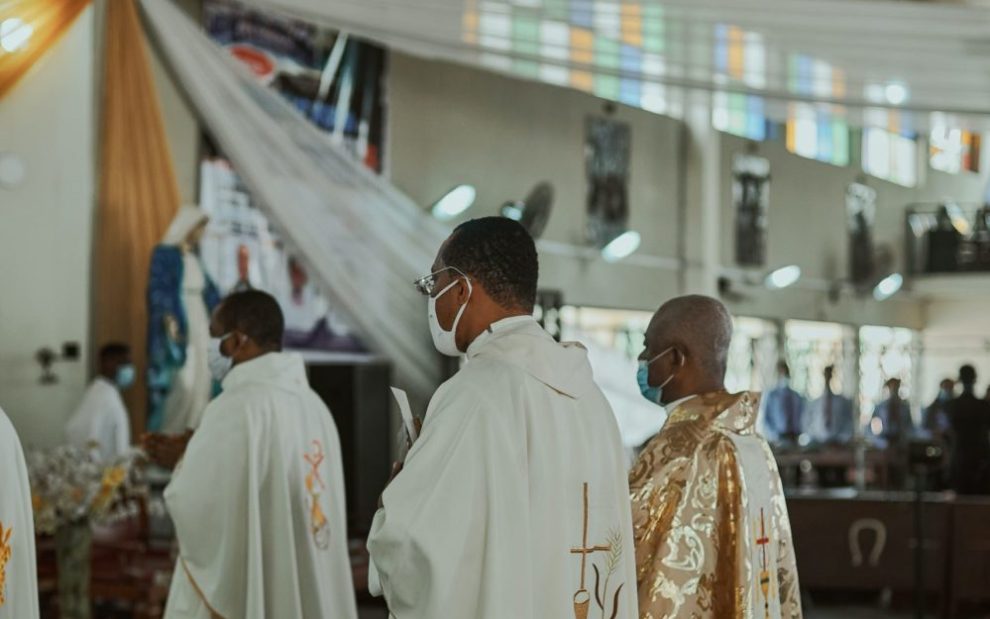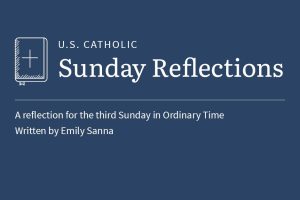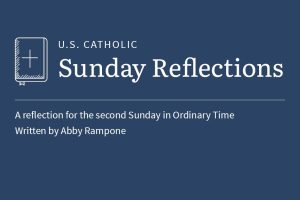“Come away to a deserted place all by yourself and rest a while.” (Mark 6:31)
Since 2020, we have experienced the far-reaching effects of COVID-19, with the death toll surpassing one million deaths in the United States alone. In addition to the loss of lives, the Centers for Disease Control (CDC) estimates that up to 1 in every 5 adults infected with the virus will also suffer the effects of “long COVID.” The economic effects, too, continue to devastate the lives of many individuals and families.
COVID-19 revealed the deep racial inequality in our nation; socially and economically disadvantaged racial groups suffered huge fatalities. Data from the CDC reveal that Black and Latino/a individuals in every age group died at a higher rate from COVID-19 than their White peers. This is partially because so many of the essential workers whose jobs require working in-person are from these ethnic groups.
A study from University of California Merced indicates that California workers in 10 essential industries experienced an increase in mortality of over 30 percent between March and December of 2020. Many health care workers have also died of COVID-19, and others suffer from mental and emotional trauma caused by caring for COVID-19 patients.
The pandemic also had a life-altering impact on everything we know about church and liturgy as the sensus fidelium, the people of God gathered in worship. Although churches were closed for many months, the hunger for spiritual life did not wane; a survey by Fordham University indicates that many Americans turned to religion for solace and to religious leaders for guidance during the pandemic.
Priests and pastoral ministers have experienced a wave of requests for pastoral care, spiritual accompaniment, counseling, and rites of Christian burial for loved ones. Parishes and priests continued to receive calls requesting anointing of the sick and counseling to address people’s feelings of anxiety and depression, anger and rage. Others started drinking again after years of sobriety; some of these people also sought help from their pastors. Priests have been overwhelmed by accompanying grieving families, some of whom are visibly angry that the government failed to protect their loved ones through policy decisions.
Usually, parish priests draw inspiration and energy for their pastoral work from daily Masses, at the pastoral and social services the parish provides, and at weekend liturgies when individuals and families gather. These pastoral activities allow priests to connect with their parishioners at both a personal and a spiritual level, as they listen to the stories about the events in parishioners’ lives and pray to God for their well-being. But COVID-19 interrupted the pastoral connection priests shared with their parishioners.
When the world began to better understand the virus and authorities put measures in place to mitigate spread, priests found themselves burdened with the task of safely reopening churches and resuming in-person liturgies. They believed that a community gathered in liturgy could generate hope and reinvigoration of spirit after times of loneliness, anxiety, and depression.
But priests trying to create safe and unified worship communities faced splits within their parish communities over masks, vaccines, and the number of parishioners allowed into church buildings at a time. Priests were subjected to vocal outpourings of dissent from frustrated parishioners, while parish ministers tried to persuade individuals and families that returning safely to liturgy after months of physical and sacramental inactivity would aid in recovery from the pain and suffering caused by the pandemic. Some yelled at priests about the measures put in place to allow safe in-person worship. And parishioners’ discontent has been exacerbated by the merging and closure of parishes across the nation, as church leaders try to deal with the reality of declining Mass attendance and parish activities.
The June print issue of U.S. Catholic focuses on vocations. After years of pandemic, I want to highlight the efforts parish priests have made to minister to the pastoral needs of the people of God during the pandemic and call attention to the devastating toll it has taken on their mental and emotional health, as well as their own sense of vocations.
A study by the Barna Group reveals that during the pandemic there has been an increase in the number of priests suffering from mental and emotional health issues. While some have devised ways of coping with the challenges and demands of ministry, others have continued to suffer deterioration in their personal health. This is exacerbated by the tendency of priests in pastoral ministry to suffer silently, not readily voicing their need for help, and by the expectation that they be available whenever the people of God show up in need of support. Such self-diminishing stoicism has a negative effect in the lives of clergy.
In the Gospel of Mark, Jesus invites his disciples to prioritize rest after a successful ministerial venture; this is an opportunity for self-care, reinvigoration, and renewal and to prepare for the ministry ahead (Mark 6:30–33). Jesus knows that effective ministry depends on balancing the need for self-care and the duty to proclaim the kingdom of God. As the disciples recount their experiences in ministry, Jesus listens to them; so we should be disposed to listen to parish priests talk about their own experiences. Such conversations can provide comfort and support that help a priest be an exemplary pastor.
Just as Jesus encouraged the disciples to rest, we, the people of God, can offer encouragement to our priests in their vocation of service and as they proclaim the gospel of God’s loving presence at a time filled with challenges and uncertainties, a time when the fabric of our individual and communal life grows frayed. As we continue to pray for more young men and women to discern vocations to the priesthood and religious life, our presence to those already in ministry should remain a source of joy for our clergy community.
Image: Unsplash/Emmanuel Ikwuegbu













Add comment